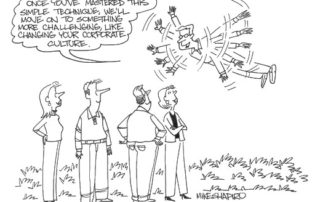FORBES: Artistic Unity – How To Radically Improve Your Leadership Communication
As published in Forbes. The human mind wanders. A lot. Almost a decade ago the Harvard Gazette reported that 47% of the time we are thinking about anything and everything other than what we are actually doing! In 2014, TIME reported that the average attention span, thanks to advances in technology, topped out a whopping eight-seconds, citing the attention-grabbing headline, You Now Have a Shorter Attention Span Than a Goldfish. However, apparently (but not surprisingly) many of us were too distracted to register these findings, as two years later they were reported again by the New York Times. Clearly, our monkey minds are alive (and not entirely well). Mindfulness, which might be best defined as the ability to give our full attention to what it is we are doing, is now billion-dollar industry! This October, Europe hosted its first conference focused on how we can best incorporate mindfulness into our organizations, but I digress. With our minds so easily distracted and the pings from our “smart” phone only making matters worse, it is no wonder we misinterpret, misunderstand, or completely miss entire communications we ought to have received. It is also why others fail to act upon the vision, values, [...]











